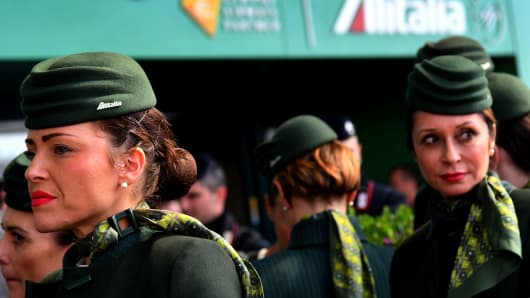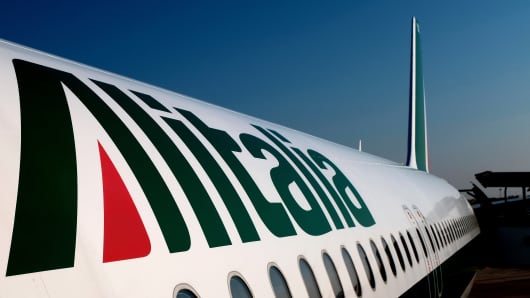Italy's flagship airline has re-entered administration for the second time in a decade, with liabilities three times greater than its assets at the latest reckoning. But few observers of either Italy's political sphere or Europe's aviation sector will be expressing much surprise.
That's because one of the company's few consistent achievements in recent years has been its ability to lose vast amounts of money. The airline has reportedly been burning cash at a rate of roughly 1 million euros a day, and were it not for the latest government intervention its remaining cash reserves would have run out by the middle of this month.
That intervention consisted of a 600 million euro bridge loan from the Italian state, designed to give the airline's recently appointed administrators some breathing space as they seek a long-term solution to the airline's well-documented ills.
Alitalia has struggled to modernise in recent years, and while the chickens born of some poor past decisions came home to roost quite some time ago, their squawks have now grown so loud at the company's headquarters inside Rome's Fiumicino airport that they threaten to drown out the roar of jet engines.
While rival legacy airlines long ago began slashing their cost bases and modernising their fleets, Alitalia failed to invest strategically in its route network and its offering, and thus lost ground in the high-margin long-haul and business markets.
Meanwhile, low-cost operators swarmed across Europe, undercutting Alitalia on continental routes and even - more shockingly - on its old bread and butter domestic travel. For the first time last summer, Ryanair surpassed Alitalia's seat capacity out of Italian airports, carrying 15.39 million passengers to Alitalia's 14.27 million. The Irish carrier now flies out of more Italian airports too, 27 to Alitalia's 26, with Easyjet not far behind at 6.8 million passengers flying from 17 Italian destinations.



